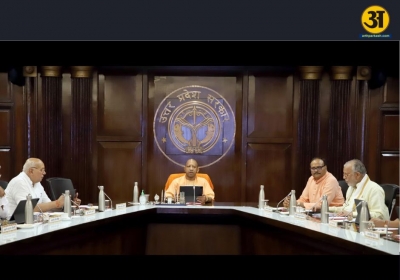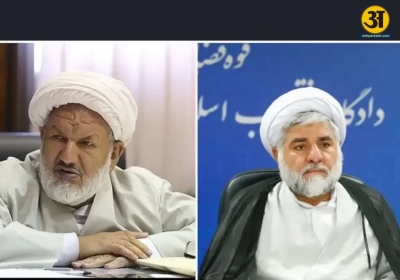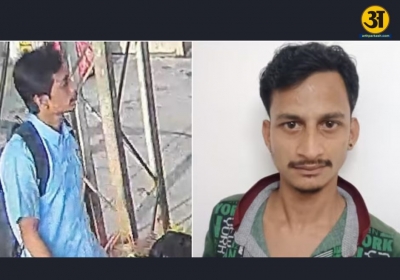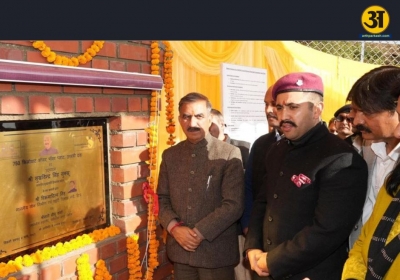
The head of the Char Dham panel has resigned
The head of the Char Dham panel has resigned, claiming that his faith has been broken.
Ravi Chopra, a long-time environmentalist, has resigned as chairman of the Supreme Court's High Powered Committee (HPC) on the Char Dham project, citing his "confidence that the HPC could conserve this delicate (Himalayan) nature as broken."
Chopra referred to the Supreme Court's December 2021 judgement, which allowed the broader road design to fulfil defence needs, rather than what the HPC had advised and the SC had agreed in its earlier order in September 2020, in his resignation letter to the secretary general.
"The HPC's duty has likewise been limited by the judgement to overseeing... only the two Non-Defense roadways... The HPC's previous directives and recommendations have either been ignored or replied to late by MoRTH (ministry of Road Transport and Highways). "This experience does not encourage confidence that MoRTH's approach to the two Non-Defense pathways will be significantly different," Chopra wrote in the letter.
"The Honourable Court has also allowed the respondents to seek legal redress for non-defense highway widening." In these conditions, I see no reason to continue to lead the HPC, or even to be a member of it," he stated.
"I feel I'll be able to do more without the constraints of being part of an official committee," Chopra told TheSources ."Perhaps engage more meaningfully in public education, and also monitor closely and write about how the (Char Dham) project is progressing — particularly in the Bhagirathi Eco Sensitive Zone, where the HPC put precise conditions for roads and the SC asked the MoRTH to follow those unanimous recommendations."
Despite his age, Chopra, 75, was "compelled to accept" the task in September 2019, "by an inner voice born out of a 40-year dedication to assist repair the devastated Himalayan ecosystem and the livelihoods of its people," according to his letter.
"Now that same inner voice is urging me to leave. The HPC's ability to safeguard this delicate ecosystem has been compromised. I'm at a loss for words. As a result, I've decided to resign," he wrote.
"While travelling around communities until a decade ago, I was shocked at how little people remembered about the Chipko movement," Chopra stated when asked if he felt depressed. Today, young people in Dehradun are protesting tree felling. These are wind-blown straws. Continue to sow, and the rain will come."
"Sustainable development necessitates measures that are both geologically and ecologically sound," Chopra wrote in his resignation letter, describing the Himalayas as a natural wonder. This type of development also improves catastrophe resilience and, as a result, national security, particularly as climate risks to slope stability become more unpredictable.
"However, as a member of the HPC, I witnessed firsthand the destruction of the once impregnable Himalayas... Engineers equipped with cutting-edge technology have assaulted the Himalayas... Engineers rejoice and spread images demonstrating their mastery of Nature, oblivious to the fact that they, too, are a part of Nature and will perish if their natural environment is destroyed.
"Nature, on the other hand, neither forgets nor forgives such heinous crimes against her treasures." Already, we've seen stretches of road vanish, only to be resurrected months later. In June 2013 and February 2021, Mother Nature shouted the alarm, with terrible results."
The Rs 12,000-crore highway development project, a flagship effort of the Centre, was envisioned in 2016 to widen 889 km of hill roads in the upper Himalayas to ensure all-weather access in the Char Dham circuit – Badrinath, Kedarnath, Gangotri, and Yamunotri.
An NGO challenged the project in 2018 because of its potential impact on the Himalayan ecology due to the removal of trees, the cutting of slopes, and the disposal of excavated waste. The SC appointed HPC Chopra to investigate the matters in 2019 and approved his recommendations on road width and other issues in September 2020.
The Ministry of Defence needed bigger highways in November 2020 to satisfy the Army's needs. The Supreme Court changed its September 2020 order in December 2021, stating that the court could not "interrogate the policy choice of the establishment that is entrusted by law with the nation's defence."
Also read : 'Finally, a cop confirmed our darkest thoughts,' says Vaishno Devi stampede victim.





